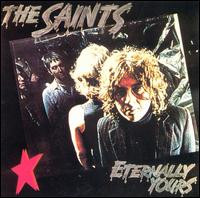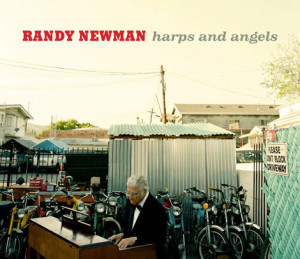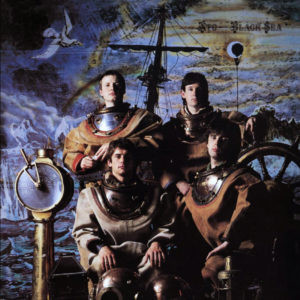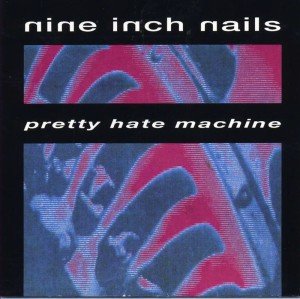Music is a powerful force, capable of igniting emotions and sparking movements. Throughout history, when potent messages collide with popular sentiment, anthems of change are born. From the resonance of horns to the fervor of chants, sound has consistently been at the forefront of revolution. As global conversations turn towards societal shifts and calls for change, it’s timely to examine the role of pop music as a catalyst for dissent. We present a countdown of 50 of the world’s most impactful protest songs.
Protest songs serve as both educators and motivators, rallying listeners against specific injustices and broader societal inequalities. The periods between the 1960s and 1980s are often highlighted for significant social and political upheavals, and this list naturally reflects the powerful music that emerged during those decades. However, it’s crucial to recognize that this era merely amplified long-standing conflicts rooted in politics, military actions, religion, ethnicity, race, sexuality, and economic disparities. Our exploration encompasses a wide historical and thematic spectrum of musical activism.
Our selection draws from diverse settings: bohemian stages, bustling festivals, impactful marches, resolute picket lines, grand concert halls, and even the halls of power. These songs range from heartfelt pleas for understanding to assertive demands for fairness. They distill complex issues into memorable sound bites and amplify calls for change. We delve into roots as deep as 19th-century pacifist poems and hymns, and extend to contemporary expressions as provocative as Pussy Riot. To showcase a wide range of artists, our final countdown includes only one song per performer. While legendary live performances are acknowledged, we prioritized definitive studio recordings and official live releases for this list.
We encourage you to explore our accompanying Spotify playlist, featuring almost every song considered, plus a few notable additions. But more than just listening and appreciating, we urge you to take action. Stand up, speak out, and continue the fight.
Photo by MikaV, Creative Commons
50. Rufus Wainwright – “Going to a Town” from Release the Stars (2007; Geffen)
In 2007, during a period of intense political frustration, it was hard to imagine a more divisive American president than George W. Bush. Rufus Wainwright, seeking refuge in Berlin, crafted his most deeply personal and scathing critique of the U.S. administration. This was a time when the extensive repercussions of the Iraq invasion were becoming starkly apparent. Presented as a sorrowful message from a disillusioned admirer, Wainwright poignantly sings, “You took advantage of a world that loved you well/I’m so tired of you, America.” This “Fight The Power Song” captures the weariness and disillusionment felt by many during that era.
 Rufus Wainwright Going to a Town song cover, expressing protest against the Bush administration's policies
Rufus Wainwright Going to a Town song cover, expressing protest against the Bush administration's policies
49. The Saints – “Know Your Product” from Eternally Yours (1978; Parlophone)
Long before discussions about questionable consumerism and the art of obedience became mainstream, The Saints were already challenging the relentless commercial bombardment of misinformation permeating radio waves. “Know Your Product” is a high-energy, brass-infused punk rock anthem directly attacking deceptive advertising. Saints frontman Chris Bailey fiercely proclaims, “Smooth talking/Brain washing/Never gonna give me what I need,” sharply criticizing the deceit and greed inherent in consumer culture. This track stands as a powerful “fight the power song” against corporate manipulation.
48. Os Mutantes – “Panis et Circenses” from Os Mutantes (1968; Polydor)
The opening track of tropicalia pioneers Os Mutantes’ debut album, “Panis et Circenses,” which translates to “bread and circuses,” became a rallying cry against the Brazilian military dictatorship. The song title itself, also the name of a compilation of like-minded artists, succinctly summarizes the government’s strategy of pacifying the public with superficial distractions to divert attention from their oppressive rule. Os Mutantes’ form of protest is characteristically playful yet pointed, with vibrant horns and swirling organ melodies accompanying almost absurd observations of a complacent society: “Soltei os tigres e os leões nos quintais/Mas as pessoas na sala de jantar/São occupadas em nascer e morrer.” Translated: “I set free the tigers and lions in the backyards/But the dining room people are too busy being born and dying.” This “fight the power song” uses satire to critique authoritarianism.
 Randy Newman in a promotional shot, known for his satirical protest songs
Randy Newman in a promotional shot, known for his satirical protest songs
47. Randy Newman – “A Few Words in Defense of Our Country” from Harps and Angels (2008; Nonesuch)
Randy Newman, a master of pop irony, delivered the lyrics for this song as a New York Times editorial in the waning days of the George W. Bush presidency. Unlike his previous topical songs where the voice is clearly a character, “A Few Words” presents Newman himself in mocking defense: arguing that while Bush and Cheney might be flawed, historical figures like Caligula, Hitler, and Stalin were far worse. His ultimate assessment, that the American empire is nearing its end and is “messy at best,” was made just before the more optimistic Obama era began. This “fight the power song” employs satire and historical context to comment on American politics.
46. Killing Joke – “Wardance” from Killing Joke (1980; Editions EG)
“Wardance,” a standout post-punk anthem from Killing Joke’s debut album, is a broad protest against overarching control and tyranny, rather than targeting a specific cause or political movement. The song’s distinctive, pulsating groove makes its stark message more accessible. Jaz Coleman, the band’s frontman, embodies this anti-authority stance in his life, often living off the grid, making him elusive even when tour dates approach. This “fight the power song” is a powerful expression of anti-establishment sentiment.
 XTC band photo, creators of the protest song "Generals and Majors"
XTC band photo, creators of the protest song "Generals and Majors"
45. XTC – “Generals and Majors” from Black Sea (1980; Virgin/RSO)
Andy Partridge delivers Colin Moulding’s critique of warfare in “Generals and Majors,” one of the more upbeat tracks on our countdown. It’s a seemingly cheerful commentary on the grim topic of war, enhanced by yelps and whistles that blur the lines between audience participation and military marching rhythms. Beneath the playful guitars and energetic beats lies the stark chorus line: “Your World War III is drawing near”— good news for the generals and majors, but a stark warning for everyone else. This “fight the power song” uses irony and upbeat music to deliver a serious anti-war message.
44. The Minutemen – “This Ain’t No Picnic” from Double Nickels on the Dime (1984; SST)
Fueled by the overt racism of his boss at an auto body shop, Minutemen’s D. Boon poured his anguish into “This Ain’t No Picnic,” a standout track from 1984’s expansive Double Nickels on the Dime. The post-punk frontman was compelled to endure his job under a bigoted supervisor due to financial necessity, and his internal frustration is palpable in the song’s opening lines: “Working on the edge/Losing my self-respect/For a man who presides over me/The principles of his creed.” This raw and personal “fight the power song” addresses workplace injustice and racism.
 Autechre promotional image, electronic music duo known for their protest track "Flutter"
Autechre promotional image, electronic music duo known for their protest track "Flutter"
43. Autechre – “Flutter” from Anti EP (1994; Warp)
The United Kingdom’s Criminal Justice and Public Order Act 1994 sought to regulate various aspects of lifestyle, including attempts to curb rave culture through vague definitions of gatherings and rhythmic music. Electronica artists of the time responded with musical protests, and Autechre delivered perhaps the most ingenious and enduring statement. On an EP bearing a tongue-in-cheek warning label, the duo’s closing track, “Flutter,” was “programmed in such a way that no bars contain identical beats and can therefore be played under the proposed new law.” Remarkably, “Flutter” retains a captivating, albeit jittery, beauty that fits seamlessly within their discography. This technically defiant “fight the power song” challenges censorship through musical innovation.
42. John Lennon – “Imagine” from Imagine (1971; Apple)
Despite its gentle piano melody and soothing vocals, “Imagine” is one of the most radically utopian songs John Lennon ever composed. Often dismissed as simplistic or impractical, it is, in essence, a profound challenge. Imagine a better world, envision the paths to achieving it, and then actively work to make it a reality. Lennon sets ambitious goals (“no possessions,” “no countries”), but even incremental progress towards these ideals represents significant achievement. This iconic “fight the power song” inspires listeners to envision and strive for a better world.
 Nine Inch Nails Pretty Hate Machine album cover, featuring the song "Head Like a Hole" a protest against greed
Nine Inch Nails Pretty Hate Machine album cover, featuring the song "Head Like a Hole" a protest against greed
41. Nine Inch Nails – “Head Like a Hole” from Pretty Hate Machine (1989; TVT)
“Head Like a Hole” can be interpreted as exploring themes of a tumultuous relationship or reluctance towards submission. Notably, it was included on Clear Channel Radio’s post-9/11 no-play list. However, the song’s true target of protest is “god money”—the corrupting influence of wealth. On his debut album, a younger and more idealistic Trent Reznor critiques the very force he would later grapple with as Nine Inch Nails achieved arena-headlining success in the 1990s. Here, his protest is against the age-old root of evil: money, in any era. This industrial “fight the power song” critiques the corrupting nature of greed and materialism.
